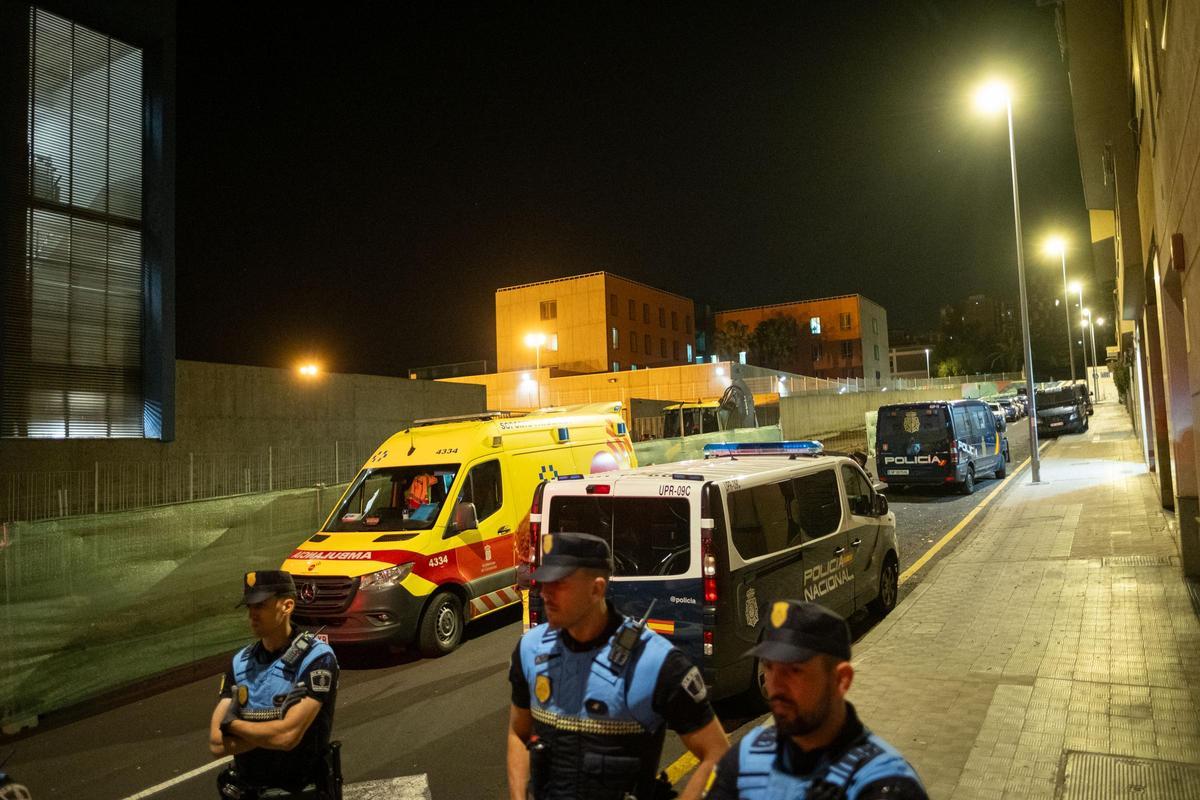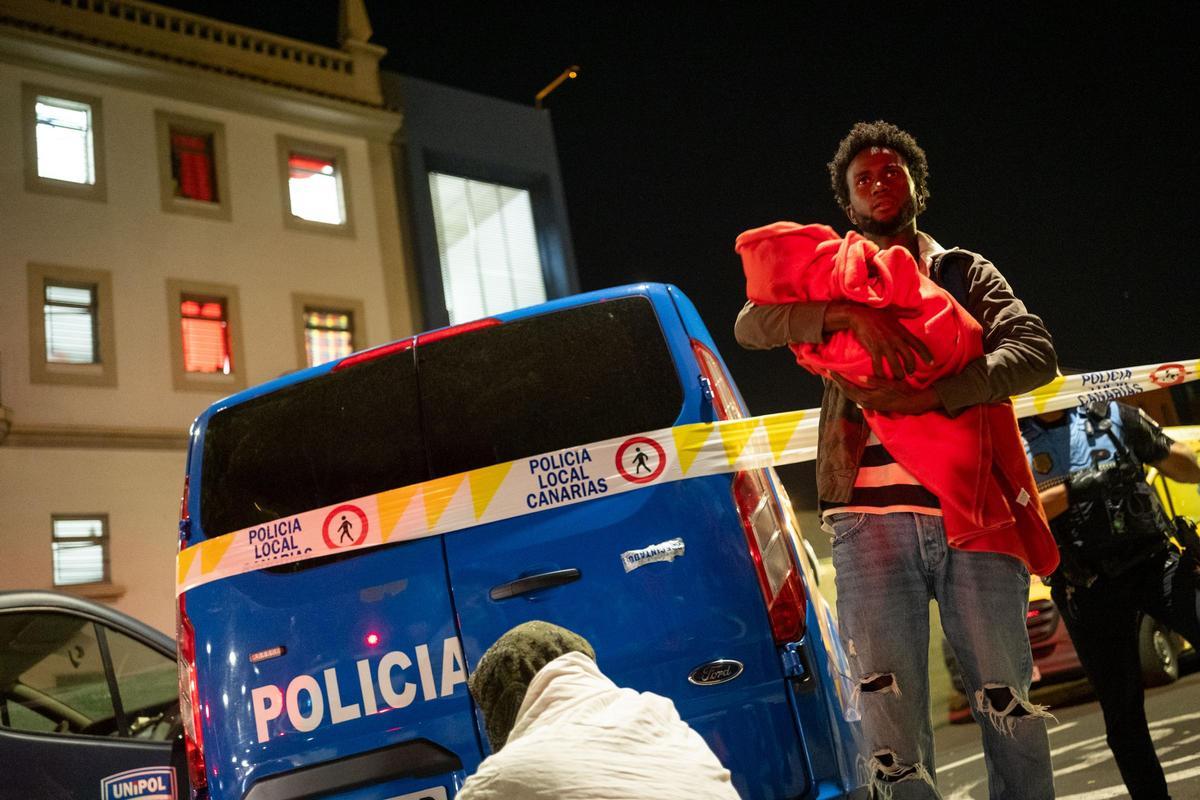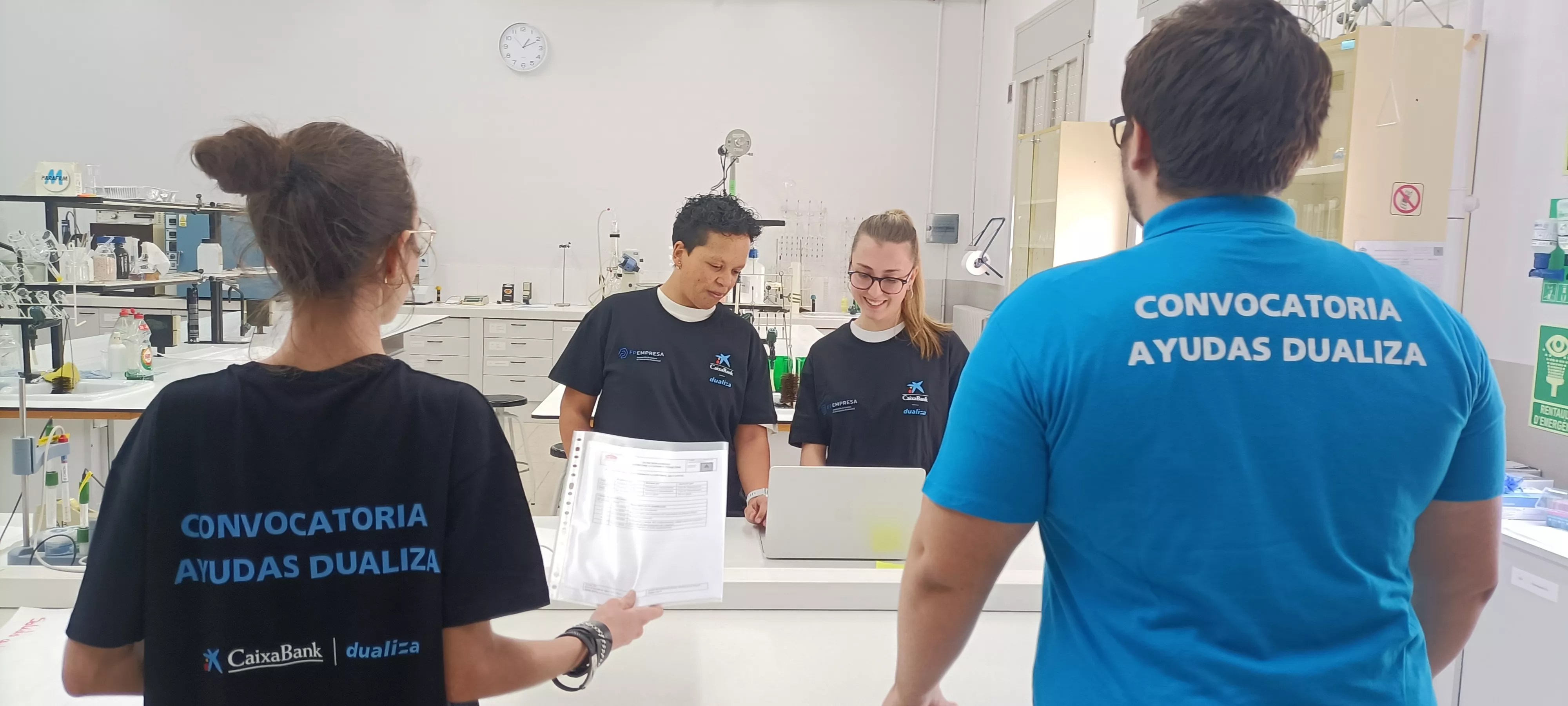A case of inaccurate paternity has emerged behind the upheaval in a reception centre for immigrants in Santa Cruz, Tenerife, which was ultimately resolvedwithout any significant incidents or injuries, albeit with a substantial police presence.
The incidents took place this Thursday, between 6:30 p.m. and midnight when a cohort of residents at the Immigrant Centre, situated in the former prison of the capital of Tenerife on Benito Pérez Armas Avenue, took refuge to prevent the transfer of a five-year-old girl to another facility after she was declared abandoned by the courts.
One of the residents claimed to be the father of the girl and had indeed been responsible for her care. However, a DNA test conducted as part of a protocol by the Prosecutor’s Office to ensure the correct guardianship of minors revealed that the man was not the biological father after all. Consequently, a judicial process was initiated, resulting in an order for the girl’s transfer to a centre for unaccompanied minors.
Detention to keep the girl
Even though the residents were apprised of these judicial rulings, a faction refused to hand over the child and forcibly took her from a social workerbarricaded themselves in certain units, holding the girl, which led to tense moments and a significant security operation, involving approximately twenty vehicles from the National and Local Police.

Police presence outside the immigrant reception centre at the former Santa Cruz prison this Thursday. / Andrés Gutiérrez
The man claiming to be the girl’s father had recently been arrested on unspecified charges. This fact, along with the revelation that he was not the biological parent as claimed, accelerated the resolution of the child’s case.
After midnight, following more than five and a half hours of unrest, the officers successfully persuaded the group of entrenched immigrants to surrender the child. The more than 20 detainees waiting outside the reception centre, including some mothers with their infants, were subsequently allowed to enter the facility, which had remained cordoned off by the police.
No injuries reported
Although there were no personal injuries to report, it was a day filled with considerable anxiety at this facility located in the central area of Santa Cruz, in the neighbourhood of Los Gladiolos, under the management of the Ministry of the Interior, which oversees the Red Cross, known as the “Mothers Centre,” serving 150 immigrants.
Earlier that same morning, a group gathered outside the premises to protest against the removal of some mothers from their children, alongside complaints regarding inadequate meals and alleged discriminatory behaviour by caregivers.
In other words, the environment was already charged when a judicial delegation arrived on Thursday afternoon at the former Tenerife prison site, to take the five-year-old girl and relocate her to a guardianship centre.
What led the man to claim fatherhood over the girl when the DNA test proved otherwise? The circumstances are diverse, but some similar cases have surfaced in recent months that culminated in the unrest in Tenerife.

An immigrant with a child outside the Santa Cruz de Tenerife reception centre this Thursday. / Andrés Gutiérrez
The man might be acquainted with the girl’s family in her country of origin or the child’s mother may have passed away during the journey. There are also cases where men and women pose as biological parents under the assumption that this will improve their chances for residency permits in Spain.
Some immigrants involved in the morning protest also participated in the riot later that night. According to reports from EFE news agency, residents of the reception centre managed by the Red Cross in Santa Cruz have raised complaints regarding substandard conditions, such as poor-quality meals, threats, and discriminatory behaviour from the staff, as well as instances where mothers were separated from their babies.
150 residents in the centre
They also expressed discontent that, with 150 individuals housed in this facility, which mainly consists of women, minors, and some fathers, there is only provision for a psychologist, a lawyer, and two social workers; that “nobody” informs them of their rights and that they receive minimal instruction in Spanish, knowing only basic greetings, despite some having been there for over a year.
“The Red Cross should safeguard our rights, yet in reality, they are the ones who are violating them, controlling our present, future, and that of our children,” stated Amadou from Senegal, who endured a similar experience in the roots camp and another centre in Seville.
Amadou has worked as an interpreter, much like journalist and activist Diallo Ablaye, who spoke of “harrowing” harassment. Another resident of the centre, who has been there for ten months, reported that when a newborn arrives in a patera or cayuco, they are separated from their mother “without any explanations.”
Red Cross issued a response on Friday. They denied that meals are provided in poor condition and encouraged allegations of discriminatory behaviour to be formally addressed so that measures could be taken if necessary.
José Javier Sánchez Espinosa, the national director of the Spanish Red Cross Migration Area, informed EFE that the centre employs 35 staff members and offers round-the-clock assistance. The services provided include psychological support and legal guidance, along with social workers. In summary, Espinosa clarified, “there is a comprehensive team dedicated to attending to all potential needs that may arise.”
Red Cross statement
As for the meal service, Sánchez explained that it is subcontracted to a firm, which ensures daily menu reviews and is attentive to the offerings. Furthermore, he noted that they are responsive to other necessities, such as diapers or bottles, emphasizing that the main aim of the Red Cross is to assist throughout the immigration process.
Sánchez Espinosa also dismissed claims that the Red Cross separates mothers from their babies as they possess no authority to do so, “with such decisions resting with the judicial system.” Regarding allegations of discriminatory behaviour, the national director pointed out that “if any such incidents occurred,” they would be first to eliminate them, as these are considered “very serious allegations.”
“We understand that moments of frustration occur and that demonstrations can arise,” the Red Cross director stated, adding that “there is no conflict” within the centre but rather that “complex situations” do occur.
















